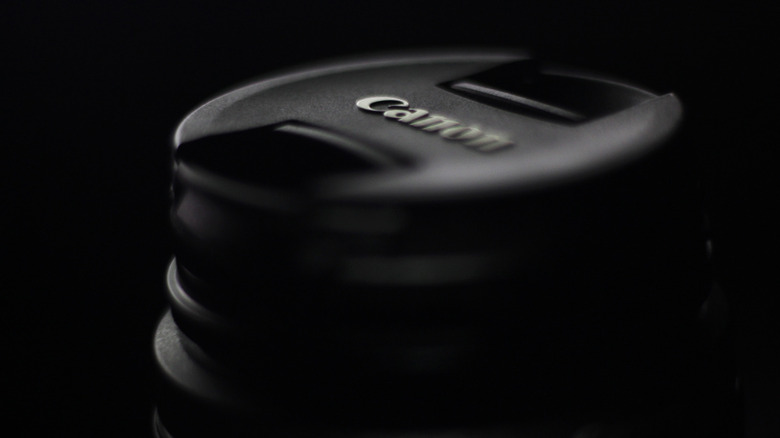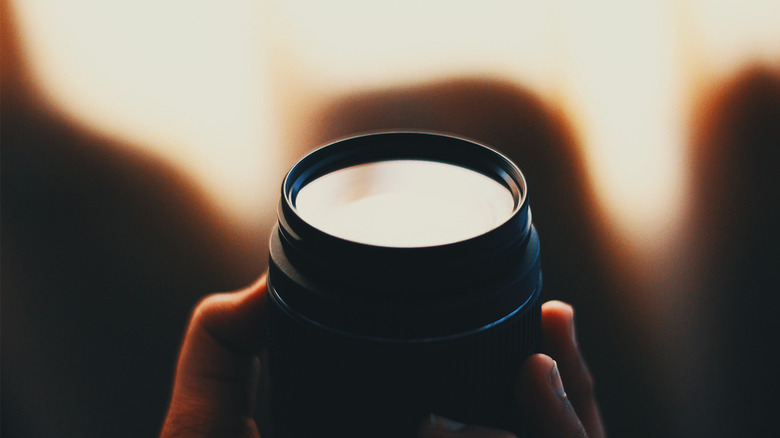4 Things You Need To Make Your Camera And Lenses Last Longer
We may receive a commission on purchases made from links.
Be it a hobby or a profession, playing around with camera equipment is always exciting — and some of the best mirrorless cameras for beginners don't even cost a fortune anymore. Despite this, every photographer and videographer knows how deep a hole investing in cameras can burn in your pocket over time — especially when trying to grab essential camera lenses to accommodate different requirements.
Purchasing expensive glass can be as scary as it is exhilarating. A single accidental drop can cause damages costing hundreds or even thousands of dollars. Even if you manage to be extra careful with the handling, with time comes general wear and tear. Besides a loss in the cosmetic appeal, this can sometimes lead to degraded image or video quality as well.
Everything from temperature change to physical impact can cause varying levels of damage to equipment as delicate as cameras. This is why it is essential to follow certain practices that can keep your camera and its accessories not just away from danger, but in pristine condition. With years of experience owning camera hardware to fuel my hobby-based videography needs, here are four things that have made my gear last longer.
Camera and lens cleaning kits
Camera lenses are essentially expensive pieces of glass sandwiched together — and glass just so happens to be one of the easiest materials to accidentally smudge. As compelling as it may seem to use the nearest cloth to rub dirt and smudges off your lenses, it is a terrible idea. Although most camera lenses fair generously well in terms of scratch resistance, it is simply not worth taking the risk.
You can find a myriad of cleaning kits for cameras and lenses online and in stores. While you don't need the most expensive set of cleaning tools, some of the essential ones include cleaning sprays, brushes, and blowers. The best approach would be to start by getting rid of any visible dust particles on the glass using a blower or a brush, and then using an alcohol-based solution and a microfiber cloth for a uniform wipe, making sure to avoid any further smudges.
Your camera also requires periodic cleaning, as dust may find its way to the sensor while swapping lenses. There are several dos and don'ts of cleaning your camera lenses — even cleaning it all too frequently isn't a good idea.
Proper storage solutions
Excess of humidity can lead to the build up of moisture inside lenses and cameras — which can destroy the electronics and circuitry. Be sure to wipe your gear after use in humid conditions, and avoid storing them in places or backpacks that are damp. Something as simple as placing your equipment in the same room as a dehumidifier can go a long way.
If you really want the best assurance, you can pick up a dry cabinet from Amazon, or one from a local store around you. These cabinets can store up to a few cameras and lenses and often use temperature and moisture sensors to automatically kick in the dehumidification process — providing you a peace of mind.
Proper storage also extends to when you're carrying around your equipment. Simply dropping your gear in a regular backpack filled with other items can be disastrous, as cameras and lenses have a lot of moving parts within. Definitely invest in a dedicated camera bag, or at the very least a pouch. Some options, like the Peak Design Everyday backpack that SlashGear reviewed, come with dividers and ample padding that make them viable for carrying around camera hardware.
Filters for your lenses
There are a lot of things you need to consider before buying a camera lens, such as its aperture, focal length, and form factor. But the decision-making doesn't end post-purchase, either. In all but the perfect lighting conditions, you might have found yourself shifting down the ISO, or cranking up the shutter speed to combat the abundance of light in the frame.
While these in-camera settings work wonders, they end up spoiling the final output, especially when shooting video. Behold the ND filter — a physical solution that screws onto your lens and allows you to control the amount of light going in. The same concept applies for protection against ultraviolet light emitted by the sun. UV filters cater to such needs, and some of the expensive options include variable levels of the natural density filter, making adjustments quick and effortless.
While there's a debate on whether UV filters are even required, they do double as a protective layer of glass on top of your lens at the very least. This can be paramount for protection against drops, scratches, or severe elements like water and fire. You can also shop for cases or lanyards for the actual camera. I've been using a screen protector on mine since day one, which gives me a sense of assurance when interacting with the touch screen.
Good quality batteries and chargers
Perhaps the most annoying thing to deal with when working with cameras is the constantly draining source of power. Most combat this by picking up spare batteries and swapping them in between shoots. You may have noticed that first-party batteries for most DSLRs and mirrorless cameras are often priced higher compared to the abundance of cheaper options you can find online. However, sticking with official accessories is always the wiser option.
If you haven't been using your camera as frequently, removing the battery and setting it aside will prevent discharge over time, which otherwise causes the overall health of the cell to deplete. Make sure you store spare batteries in a cool location, and avoid exposure to the sun or heat. Nikon also suggests charging and discharging any batteries you own once every six months for the best upkeep.
Although modern electronics handle power management quite well, it's best to avoid leaving your charger plugged in after your batteries are done fully charging. If you use your DSLR for long hours at a stretch, say for example while streaming, you will benefit from buying a dummy battery that plugs into the wall and supplies power directly to your camera.




